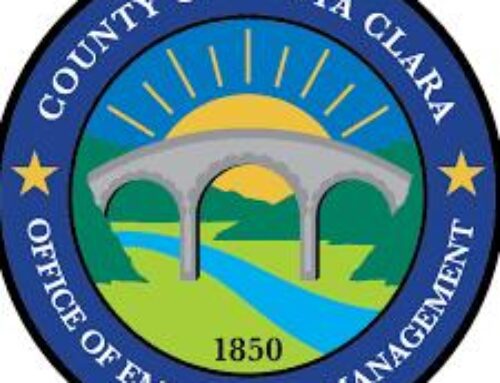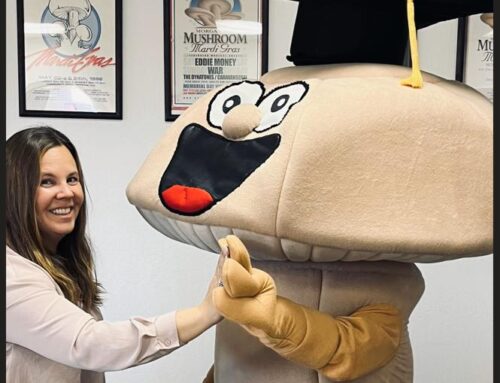Daniel Xu now heads Medair’s U.S. presence
Published in the March 30 – April 12, 2016 issue of Morgan Hill Life
By Marty Cheek
Daniel Xu is a Chinese-American who grew up in Beijing until he was 11 when his family moved to Fremont where he went to middle school and high school. After graduation, he joined the U.S. Marines, and served in Iraq in 2005. That experience gave him a deeper understanding of how a crisis situation can devastate the people of a nation. And that realization helped lead him to become involved with the nonprofit group Medair.
After he returned from Iraq, Xu decided to get a masters degree in international relations. He realized that studying in Geneva, Switzerland, the base for many international organizations, would be the ideal spot to pursue his degree. While there, he worked for several international organizations. He then found his way to Medair, a humanitarian organization inspired by the Christian faith that works to relieve human suffering in some of the world’s most devastated places.
In November, Medair relocated Daniel and his wife Ellen to the Bay Area where they found a home in Morgan Hill. Xu’s role as director of Medair US is to expand its presence, helping Americans learn about the emergency relief and recovery organization which is based in Geneva but also has offices in the United Kingdom, Germany, France and the Netherlands.
“There are a lot of American colleagues who work with us but they usually find out about the organization through word of mouth in the field, and some of the people already work in those countries. Or they find out about us through social media or the Internet,” he said. “We really have not had a permanent presence here in the U.S., so the idea is that we will come out here to build an office and to grow in the Bay Area.”
Ellen has been supportive. She is British and worked in Geneva in finance. “When he got the (Medair) job, we both left our jobs in Switzerland in order to be here,” she said. “We felt very unfilled in our jobs, even though they were very interesting, but we wanted a bit more from life. When this came up, even though it meant moving to another continent, we never looked back because we see the impact and it’s very motivating.”
Xu’s office is based in San Jose, and another Medair worker is based in Oakland.
Medair assists people who are suffering when a natural disaster or a political/social crisis hits their country. They provide aid to those in remote and devastated communities to survive the crisis and help them rebuild. Its teams work side by side with communities, helping them improve their essential services and providing them with training for the future, Xu said.
“It’s similar to the International Red Cross in a way, but it’s different because we do certain things that the Red Cross wouldn’t do,” he said. “They build some temporary shelters, but they wouldn’t necessarily build houses. Our role is that we would provide immediate relief, but at the same time we will stay there until things stabilize and the recovery phase is over.”
The humanitarian organization focuses on three areas of disaster or crisis recovery: health and nutrition, shelter and infrastructure, and water, sanitation and hygiene. When a crisis strikes a country, the health risks can multiply. Children and the elderly might be weakened by malnutrition, for example, so Medair helps with medical needs and food resources. Safe shelter is an essential part of human survival. Medair helps communities build their infrastructure such as roads, bridges, schools and health clinics after a disaster. And in order to stop the spread of disease, Medair helps to provide safe water, sanitary latrines, and good hygiene during a crisis.
“Once things have been stabilized and built back to the normal phase, then we would hand our work over to the government, if they have the capacity, or another specialized development agency such as World Vision. And then we would leave and go off to the next site,” Xu said.
Recent examples of places Medair has aided people in emergency relief and recover include Nepal after the devastating earthquake of April 2015 that killed more than 8,000 people and the Philippines after that island nation was hit by Typhoon Haiyan in 2013 and impacted more than 14 million Filipinos. The emergency representatives were on the ground and helping people within 48 hours in both situations, Xu said.
“We have a permanent team in Switzerland, they’re our emergency response team and they’re the ones that monitor all the developments globally,” he said. “In the case of Nepal, they decided to respond and take the first stage to establish their presence, and then later more staff came in to provide additional relief. Depending on what the disaster is, we will incorporate into our work whatever might be needed.”
In many third-world countries hit hard by natural disaster, national and local governments do not have the resources or administration to help their own people, so humanitarian organizations such as Medair are vital to make sure the loss of life is minimized. Wealthy nations such as America have the resources and government programs to help their citizens, so Medair would most likely not be involved in humanitarian aid, Xu said.
“Our mandate is to go to places where they don’t have the capacity to respond. So if something happens in the United States, it’s not likely that we would respond. Ultimately, this country does have resources,” he said. “But in places like the Democratic Republic of the Congo or Afghanistan or with the Syrian refugee issue right now, you don’t have a government that can respond to provide relief for their citizens. So we want to be that 911 responder to places that don’t have it.”
Even though it’s a Christian-based religion, Medair considers itself nondenominational and will not decide on help given or staff hired based on religious beliefs.
“We go to a disaster zone. The idea is that you want to provide relief to people who are suffering, and you don’t have time to figure out people’s religions,” Xu said. “You just want to respond.”
Medair follows an 80-20 method of fundraising. About 20 percent of the funding comes from private donors funding sources including individuals, corporations, foundations, and private companies, while 80 percent of its funds comes from institutional partners such as the United Nations, the U.S. government, the British government and the European Union.
“What we’re trying to do is to create this private-public partnership in order to not drive just the agenda of any particular company or government, but take advantage of the leverage of all these resources from different entities to serve the poor,” he said. “What we’re trying to do is bring hope to places where hope is fading. Sure, we can’t change the course of the Syrian civil war, we can’t stop the next earthquake, but what we can do is provide that hope in places that need hope and minimize the suffering in places where there’s a disaster situation.”
The Morgan Hill Presbyterian Church is helping to support Medair as one of its organizations. The church members provide not just financial support but also are working to help connect Xu and other Medair staff to the media and people interested in humanitarian work.
“The church is really involved with a lot of local charities, but they were really interested in the contact with an international need,” Ellen added.
“One of the things I want to do is reach out to the community and speak to like-minded people who have the hearts and the means to support humanitarian needs,” Xu said.
Medair also based its American operations in Silicon Valley with the hope that there are a lot of innovation and ideas in this area that might help countries facing a natural disaster or crisis.
“If there are companies and technologies we can utilize and take advantage of that can really improve the work we’re doing, I think that can be interesting,” Xu said. “I think at the end of the day, it’s the right thing to do. As human beings, we should be able to help each other out when they have a need.”








